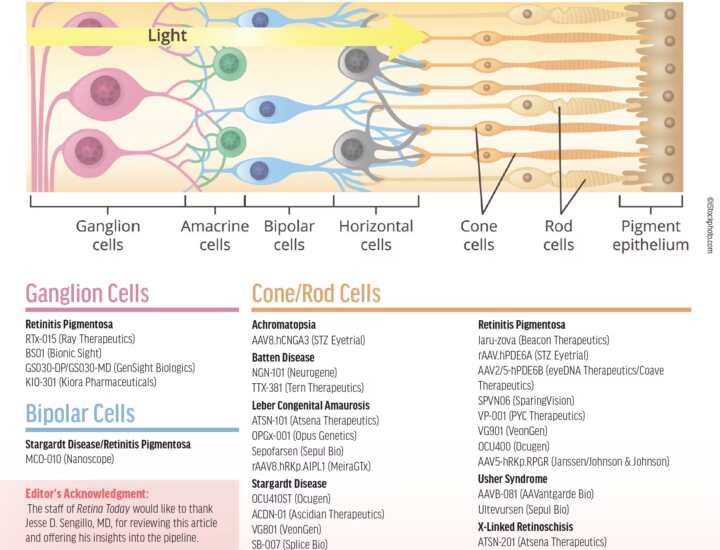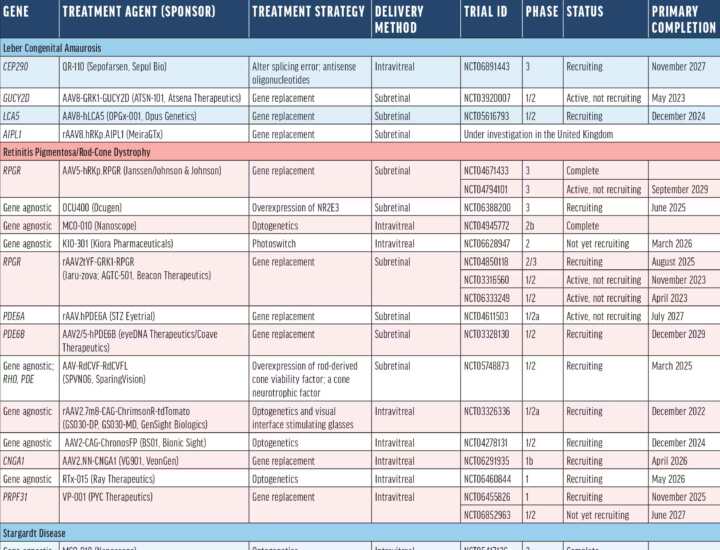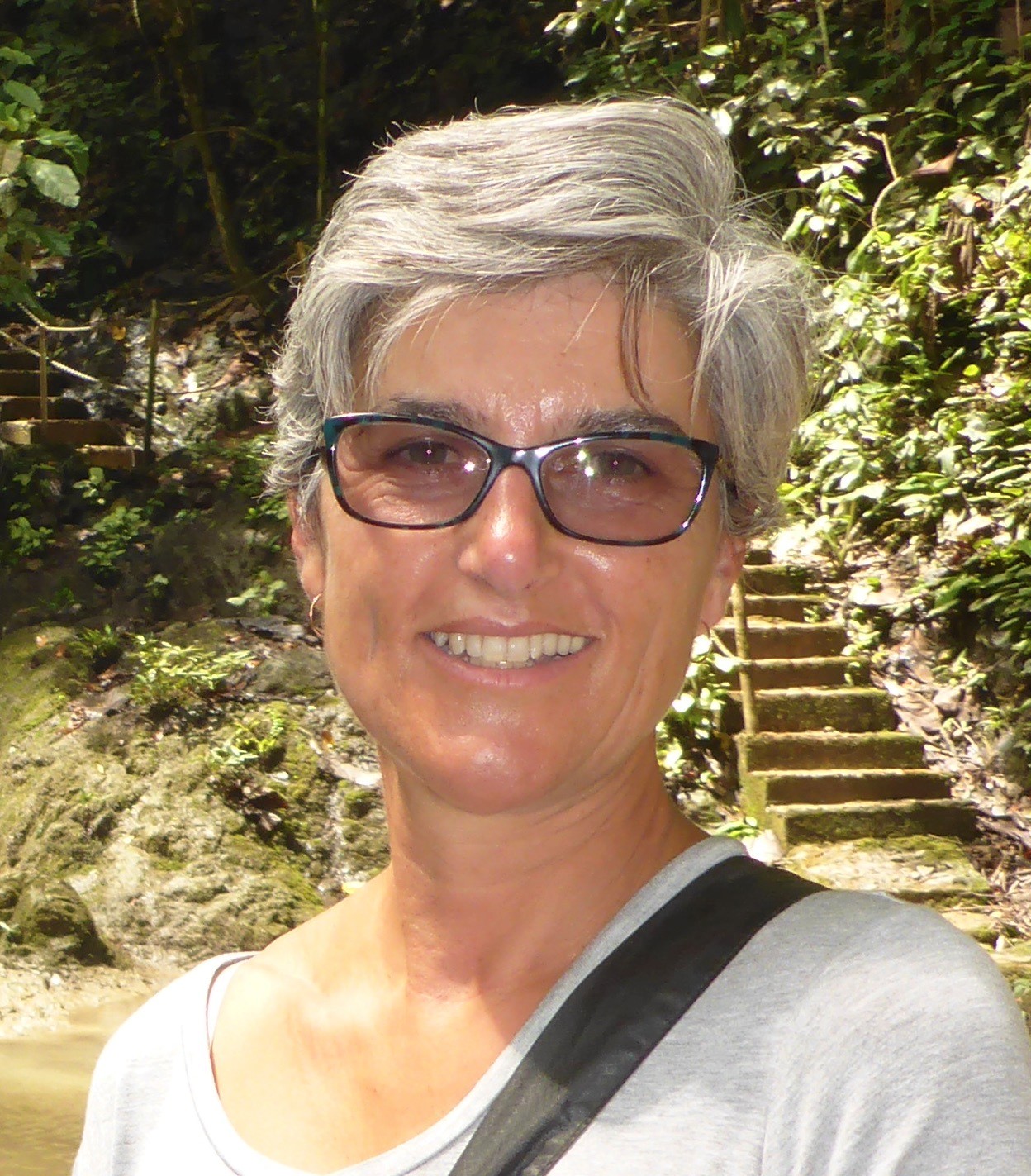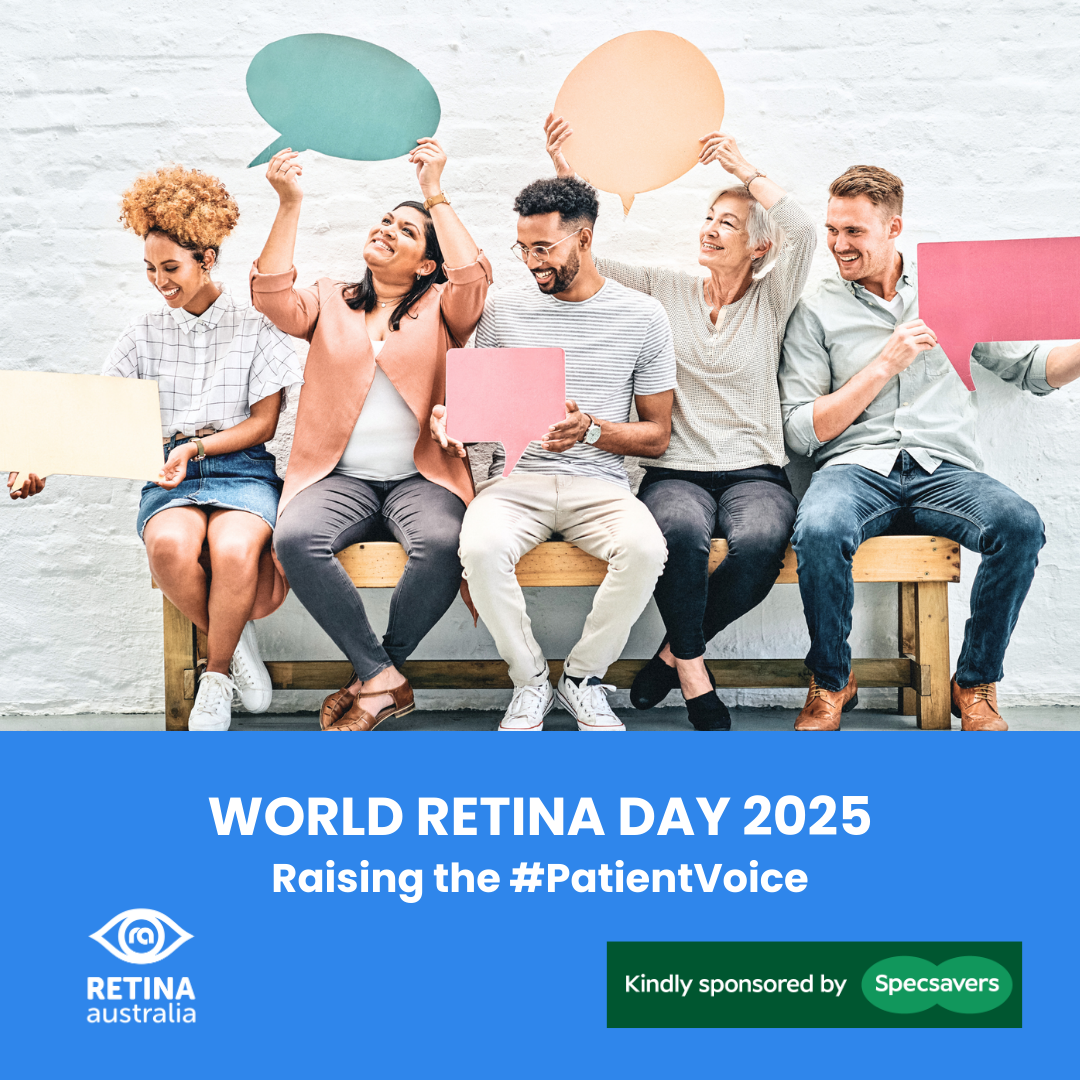16 September, 2025
Hot Off The Press
Check out below to see what new inherited retinal disease (IRD) therapies are in the pipeline.
I have lots of fun stuff for you this month so read on…
Yay! IRD therapies are finally starting to arrive!
The editor of “Retina Today” journal is very hopeful for the future of IRDs. He tells us that more than 30 clinical trials are now underway for vision-saving and vision-restoring therapies, and at least 40 commercial companies are now investing as treatments are reaching the later stages of clinical trials.
Optogenetics is particularly exciting as the method is not mutation specific and it restores vision for patients who have lost virtually all their photoreceptors. There are four commercial companies trialling these treatments now.
As always, genetic testing is crucial for all those affected by IRDs, if you want to have an opportunity to be a part of new trials and treatments.
And vision rehabilitation can be very helpful for anyone with low vision navigating the trials of everyday life. You can ask you ophthalmologist about it.
And of course, don’t forget to wear quality sunglasses to prevent further damage to the retinas from UV light.
Gene Therapy for Inherited Retinal Disease: The Pipeline
Look at the chart below to see just some of the many gene therapy trials going on currently around the world. It’s astonishing. And there are many other kinds of trials going on, not just gene therapy…

Source: Retina Today

Source: Retina Today
I have also picked out some news on specific diseases for you below:
A few key messages:
Avoid excessive vitamin A intake, including supplements and topical retinoids, which may potentially accelerate retinal degeneration.
If you notice sudden vision changes then get checked for macular neovascularisation which can happen with Stargardts and which needs early treatment.
Cataract surgery can lead to bothersome light sensitivity, so have a good discussion with your ophthalmologist before going ahead.
Lebers (RPE65 type) is excitingly the first IRD which has an approved gene therapy treatment.
This treatment improved vision at 1 year in the trials which was maintained at 4 years. And there are several other trials in the early stages for LCA. The causative gene can be identified in more than 75% of Lebers, so again, make sure to get your genetic testing done to keep you in the running for trials and treatments.
The causative gene can be identified in up to 80% of cases. There are a few trials around but not many. Most are focused on the ABCA4 subtypes. These are again associated with Lipofuscin accumulation as per Stargardts, so the same message a about avoidance of too much Vitamin A makes sense.
It’s best to avoid high-dose vitamin E supplements (greater than 30 IU/day) and also avoid Vitamin A supplements which don’t seem to help, and can sometimes be harmful. (Just eat your vegetables!)
There are several early clinical trials happening in this space.
There is a new gene therapy which could be a great leap forward for nAMD. It has been successful in animal models so far. The gene is injected into the eye via viral vectors and allows the eye to make its own long-term antibodies which prevent the growth and leakage of abnormal blood vessels in the eye. Only a single intravitreal eye injection is needed for long term treatment. It seems to be safe, and the results so far are good. Exciting stuff. Roll on the clinical trials!
A few early observational and interventional clinical trials are underway for choroideraemia, many in conjunction with retinitis pigmentosa (RP). One uses optogenetic gene therapy, another uses a gene-agnostic photo switch, yet another uses stem cell therapy, and another is looking at vitamin A so there is a good variety going on.
Early clinical trials involving subretinal gene therapy are looking promising.
MCO-010 is an upcoming optogenetic therapy for RP which can be given as a single intravitreal injection and is the first therapy to restore vision in RP patients with severe vision loss. Even better, the improved vision lasted for the 152 weeks of the trial and will potentially last longer.
A methotrexate intravitreal injection treatment is being fast tracked for RP. A phase 2/3 trial is being launched this year. It seemingly improves light sensitivity.
Groundbreaking advances in imaging and biomarkers.
A combination of ocular CT scanning (OCT) and OCT with angiogram (OCTA) and now the arrival of AI processing assistance mean that diagnoses are becoming increasingly more precise and increasingly faster to achieve.
Also, lab-grown, tissue-engineered retinal models that mimic key retinal layers are arriving which allow detailed disease study and may improve preclinical testing of therapies.
That’s all for this time folks…
Who knows what will pop up next? Keep watching this space.
Till next time…
Cathy x
Guest writer – Dr Catherine Civil
My name is Dr Catherine Civil. I have been associated with Retina Australia since the early 2000s. At that time, they were called WARPF, or the WA Retinitis Pigmentosa Foundation. WARPF were raffling a car in a shopping centre, and it caught my eye because my dad and my uncle both had Retinitis Pigmentosa. Being a doctor and a parent, I had a particular interest and awareness, not just of the disease, but of the fact that there was a significant risk that I or my children or my relatives might have inherited it.
I turned up at an AGM and found myself on the Board and engaged in fundraising. I spent several years on the Board and met some wonderful people, and I was even Chairman for a couple of years. When I left, I started writing the “Hot off the Press” research update column for the newsletter.
I arrived from the UK in the early 1990s with my husband and twin baby girls to live in Perth for a year for a bit of sunshine and fun, and we find ourselves still having fun in WA 30 years later, and with a grown son as well.




